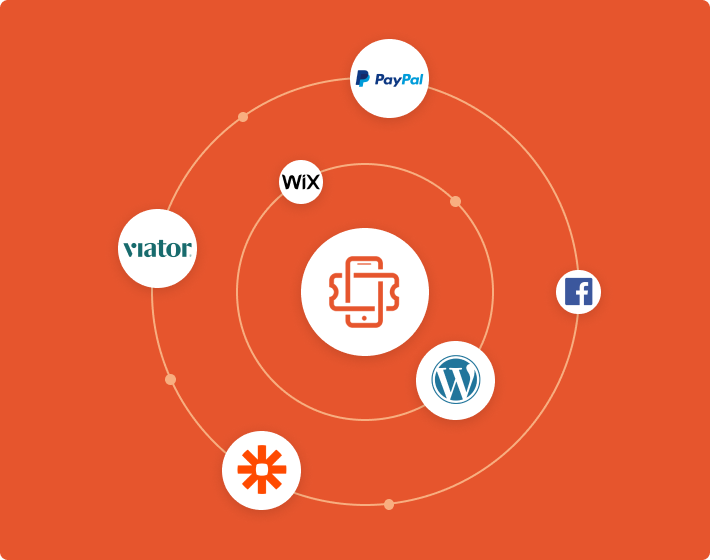Introduction
Although the Covid pandemic is behind us, tourism is still struggling to reach 2019 levels. As reported by Statista, the war in Ukraine, the subsequent disruption to the supply chain, and the increasing feedstock prices (crude oil, corn, etc.) have cast a shadow on recovery. To make sense of this scenario, the Regiondo team has interviewed over 140 tour operators, activity providers, and other professionals in the travel sector. We asked them about their hopes and fears for 2023, so we could better understand what to expect over the upcoming months. The whole survey revolved around the question, “What’s the main challenge you will face in 2023?” As expected, almost half of the respondents answered with “inflation.” The impact of inflation on tourism can be disruptive, and that’s probably an understatement.
Do you want to know more about the challenges tour operators and activity providers will face in 2023? Download our infographic to get the latest insights – Click here.
For tour operators and activity providers, being aware of the current market dynamics is the best way to maintain profitability in the face of declining consumer confidence and spending. Understanding the economic implications of inflation and its effect on our industry will help businesses make informed decisions to stay afloat during these challenging times. In the following paragraphs, we’ll tell you everything you need to know about the topic and suggest a few proven strategies to increase your bookings despite the gloomy economic situation. With our help, you’ll be able to face any upcoming challenge and emerge even stronger on the other side.
Understanding the impact of inflation on tourism
Before we analyze in depth the impact of inflation on tourism, it’s crucial to clarify the very definition of this term. The Cambridge Dictionary describes inflation as “the rate at which prices increase, or an increase in prices.” More precisely, we speak about inflation when there’s an overall increase in the prices of goods and services, which translates into the decline of customers’ purchasing power over time. When inflation rises, the currency loses value, meaning you can buy less with €50 today than you could yesterday. It’s important to note that inflation and recession – even though they often go hand in hand – are not synonyms.
For the Cambridge Dictionary, a recession is “a period, usually at least six months, of low economic activity, when investments lose value, businesses fail, and unemployment rises.” Also, it is usually characterized by a decrease in the gross domestic product (GDP) – a monetary indicator that measures the size of the total economic activity of a country during a specific timeframe. Keep in mind that we can speak about recession only if the economic decline is at the same time widespread among multiple industries, protracted and substantial.

It’s clear that inflation and recession are different concepts, but what’s the relationship between them? Well, as you can easily imagine, they’re strictly interlinked and can co-exist simultaneously. More often than not, one is the cause of the other. For example, inflation can lead to a slowdown in the economy (recession) as the costs of raw materials and labor increase. It can also happen that governments take measures to slow down the economy in an effort to contrast inflation, which can result in a recession or, in severe cases, deflation.
With rising inflation, travel is arguably one of the hardest-hit segments since customers tend to cut discretionary spending when their purchasing power decreases. 99% of the over 140 industry professionals that responded to our survey believe that inflation will drive tourists to alter their holiday plans, causing a notable rise in short-term bookings. 85% of them also fear that the economic conjuncture will have a significant negative effect on their business.
Statista, one of the leading online platforms dedicated to market data, has confirmed our findings in a recent series of surveys. According to their data, one out of three American travelers has decided to pick a cheaper destination in 2023 compared to the previous years. Similarly, 86% of Brits between 25 and 34 think inflation will impact their holiday decisions.
Ways to cope with the impact of inflation on tourism
Tour operators and activity providers have faced numerous challenges over the years, and the recent rise in inflation has only compounded those difficulties. To curb the impact of inflation on tourism, professionals in our industry can rely on some proven approaches. These include adopting cost-saving strategies, investing in marketing and promotional campaigns, exploring alternative revenue streams, constantly adapting to changes in consumer behavior, and enhancing innovation activities and investments.
Cost-saving strategies
Adopt green policies
Reducing unnecessary expenditures is paramount to preserving your profit margins during periods of economic uncertainty. Identifying areas of your business where you can effectively cut costs will require plenty of time and hard work, but there are some simple steps you can start taking now to find the right balance. We suggest killing two birds with one stone by adopting a few environmentally friendly policies that can also help save some money. For starters:
- Replace your lightbulbs with energy-efficient (LED) ones.
- Make better use of natural light to reduce energy consumption.
- Switch off electronics and unplug chargers when not in use to save standby power.
- Avoid disposable supplies of any kind.
- When possible and if applicable, allow employees to work from home.
- Invest in energy-efficient appliances and equipment made from recycled materials.
- Go paperless with the help of a booking system.
Automate tasks with a booking system
To elaborate on the last point, booking systems are applications that allow you to digitally manage reservations, sell tickets online, and connect with the major OTAs. Regiondo – the leading software in this category – is an effective tool to digitalize your business and say goodbye to paper. Not only that, it can also help you further reduce your expenses by automating menial tasks and administrative work. Automation can be a real lifesaver if you’re short on staff and have trouble hiring new employees. Here are a few examples of some neat processes you can set up with a state-of-the-art booking system:
- Automatically sync your offers and update availability across multiple OTAs and resellers from the channel manager.
- Enable automatic customer notifications, including booking confirmations, cancellations, and other transactions.
- Make use of automated feedback requests after each booking to collect more customer reviews.
- Accept online bookings 24/7 with no human intervention required.
Keep also in mind that an all-in-one booking system already includes all the tools needed to run a tour and activity business efficiently – from the channel manager to the POS – so you can save money on third-party tools.

Zero-based budgeting
A more advanced strategy to save money is to adopt zero-based budgeting. The idea behind this methodology is to start from scratch and allocate each expense based on current needs and priorities rather than using last year’s spending as a baseline. As a result, your income minus your expenditures should equal zero by the end of a specific financial period. Furthermore, every single expense must be justified with consideration of its impact on the company’s bottom line; this significantly helps organizations in determining which costs are essential and which can be reduced or eliminated. In other words, zero-based budgeting aims to ensure every investment is aligned with the organization’s goals and that resources are allocated efficiently.
Marketing and promotional campaigns to curb the impact of inflation on tourism
Tour operators and activity providers know well that leveraging digital marketing is key for any successful business. What they’re probably wondering – considering the devastating impact of inflation on tourism – is what strategies they must adopt to reach a new audience during a period of crisis. Below you can find our recommendations.
Stay true to your brand
Branding is all about differentiation and staying true to your company’s unique characteristics. Remember that those elements that make your value proposition stand out do not magically become unappealing just because we might be in a recession. For these reasons, sticking to your message during an economic downturn while others retreat is a huge opportunity to reinforce your brand’s unique qualities and prevent it from becoming a commodity. By adhering to your authentic identity, you can stand out from the competition and provide clear reasons for customers to remain loyal. The bottom line is that falling into the trap of embracing the lowest common denominator won’t help you reach a new audience, quite the opposite!
Focus on the hidden perks of traveling
Over the years, numerous studies have shown that going on vacation can reduce stress levels, improve psychophysical well-being, and enhance the overall quality of life. Furthermore, travel provides the opportunity to connect with family, which has become increasingly important in recent years. With the potential for an economic downturn in 2023, it’s crucial for tour operators and activity providers to highlight these benefits in their marketing and advertising campaigns.
Highlight the added value of your offers
During the Covid pandemic, tour operators and activity providers have learned that flexibility is the name of the game. This remains true during a recession, when customers may experience feelings of anxiety and uncertainty. To preemptively address any doubts they may have during the reservation process, it would be mutually beneficial if you could offer them easy cancellations, hassle-free refunds, and extended customer support. We suggest prominently highlighting these perks both in the description of your offers and in the copy of your ads because they can decide whether a traveler books your experiences or not.
Finding new revenue streams
One way to mitigate the impact of inflation on tourism is to diversify income by exploring alternative revenue streams. This can include offering new products or services, expanding into new markets, or forming partnerships with other companies in the industry.
To give you some food for thought, did you know that – according to travel industry news site Skift – the wealth of high-end consumers is increasing faster than inflation? Therefore, tour operators and activity providers should not shy away from putting a premium on the prices of services and packages that cater to this demographic, like offering the possibility to book a transfer from your customers’ hotel to the site where your experience takes place and charging more for such services. On the other end of the spectrum, you may choose to attract a higher number of “budget-conscious” tourists by offering more bare-bones versions of your tours or giving them a chance to book using a Buy Now, Pay Later service.

Adapting to changes
As you can imagine, staying attuned to your target market’s changing behavior, desires, and travel patterns is crucial. This means being open to new ideas, experimenting with different approaches, and staying ahead of industry trends. As suggested above, companies can offer more flexible booking and cancellation policies, embrace sustainable tourism, and offer virtual or hybrid travel experiences to appeal to a changing customer base. Keep also in mind that the impact of the recession on customers’ choices can be so massive that it might change the demographic interested in your value proposition entirely. According to a Semcasting report that analyzes the influx of tourists in Cape Cod, the destination has registered a 60% increase in baby boomers visitors in 2022 compared to the previous year. At the same time, the number of millennials visiting has decreased by 40%, because they were hit the hardest by inflation.
By being proactive and adaptable, tour operators and activity providers can weather the economic turbulence and emerge from the recession even stronger.
Don’t be afraid to innovate
As extensively explained in this post, finding ways to save money is an absolute priority during a recession. That being said, you need to strike the right balance between cutting costs and pursuing innovations that can help you generate more revenue. In our survey on trends in 2023, we asked our interviewees about their plans for keeping up with the competition. 67% answered that, despite the economic situation, they plan to invest in improving their online presence.
Luckily, you don’t need a huge budget to reach this goal. For instance, did you know you can create and update your company’s official website all by yourself instead of contracting an expensive communications agency?
Website builders are applications that allow you to create a web page by simply adding your content to a pre-made template that can be personalized in every single detail. It’s cheap, takes only a few minutes of your time, and you don’t need to learn how to code to get amazing results. If you want to learn how to create a booking website for tour operators and activity providers with Regiondo’s website builder, check out this guide.
Conclusion
As we have seen, the impact of inflation can be disruptive, but applying the right strategies and adopting some smart tools can help you navigate the tides of economic turbulence with ease. In particular, using a booking system can help save costs by streamlining menial tasks, automating the reservation process, and managing multiple distribution channels with a few clicks. To learn more about Regiondo, the leading booking software for tour operators and activity providers, you can book a free demo with one of our consultants.





